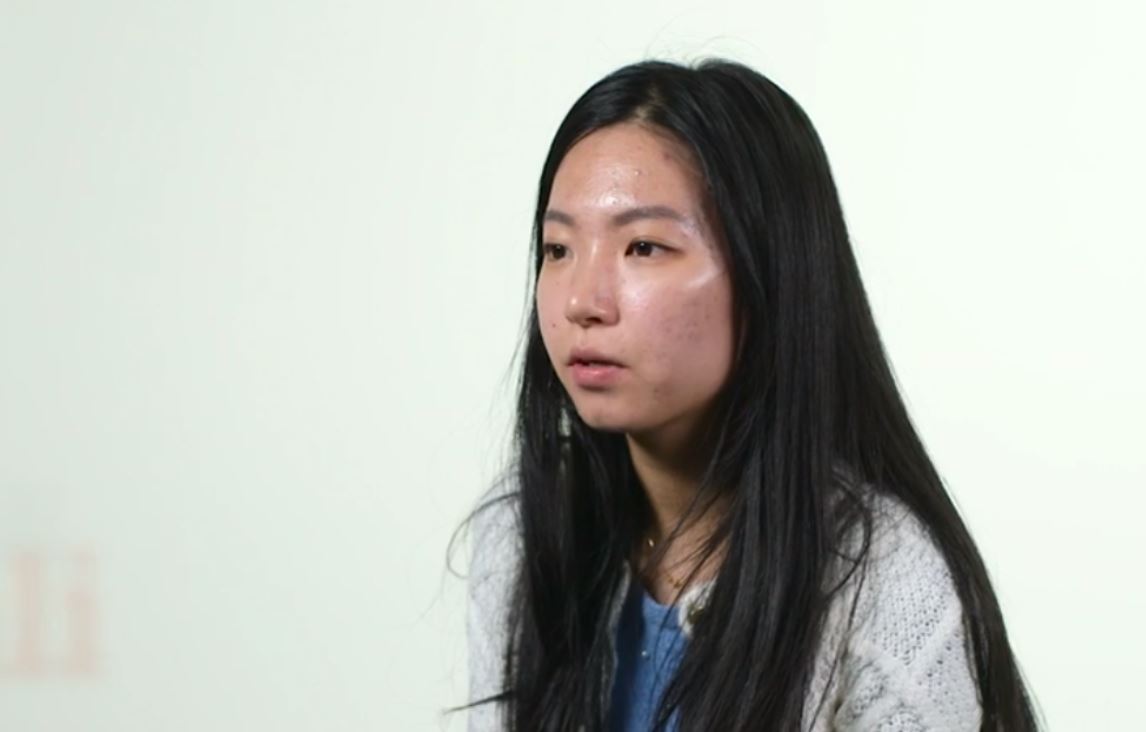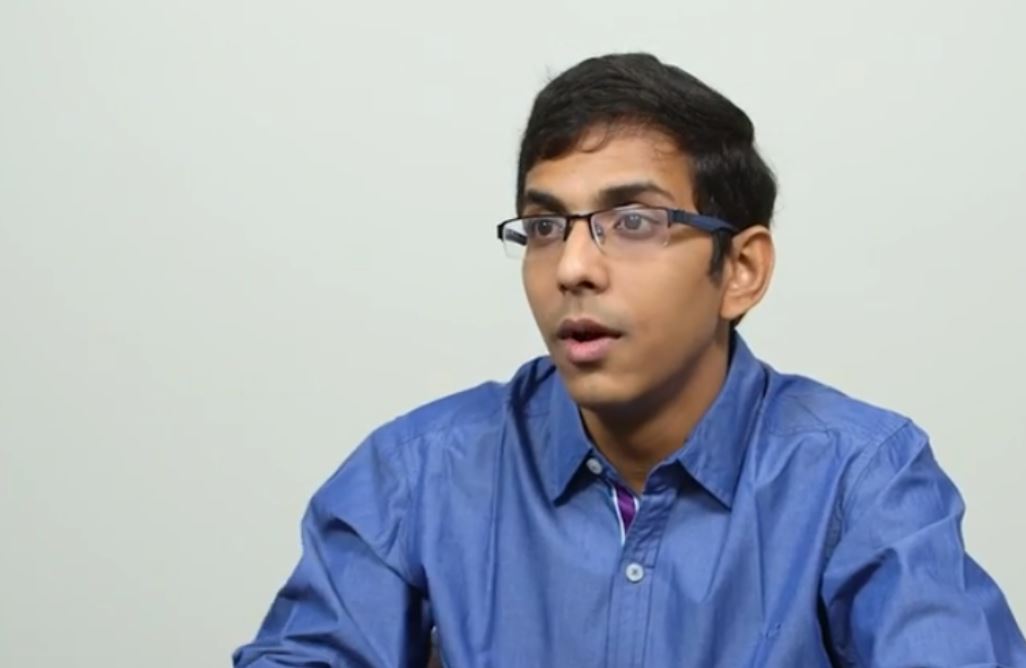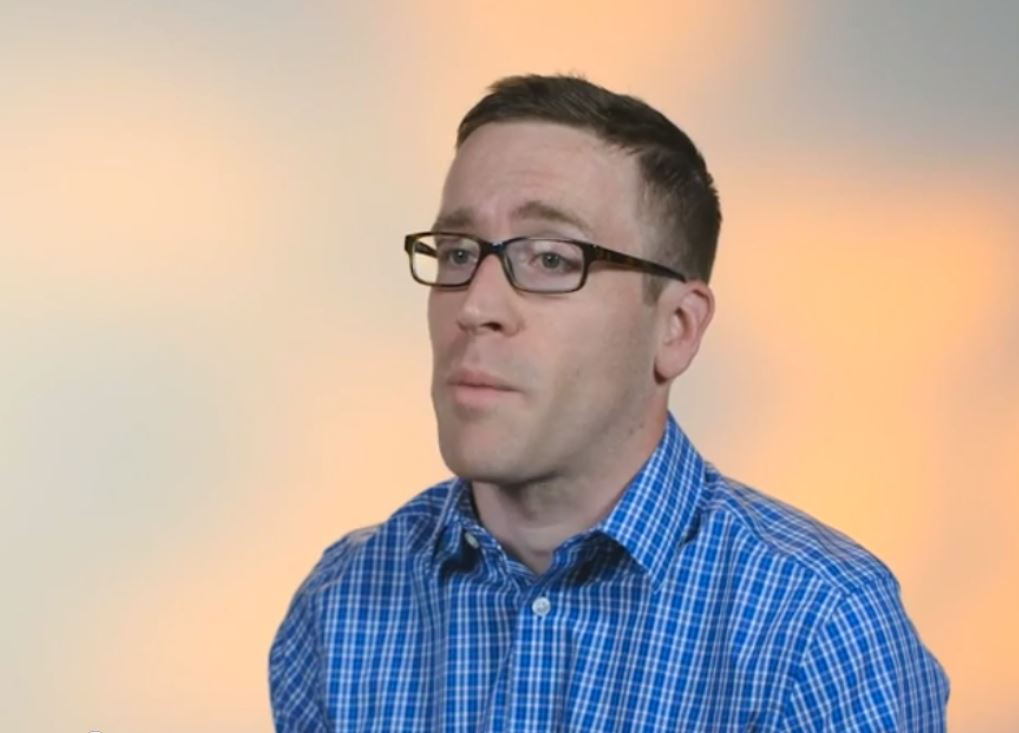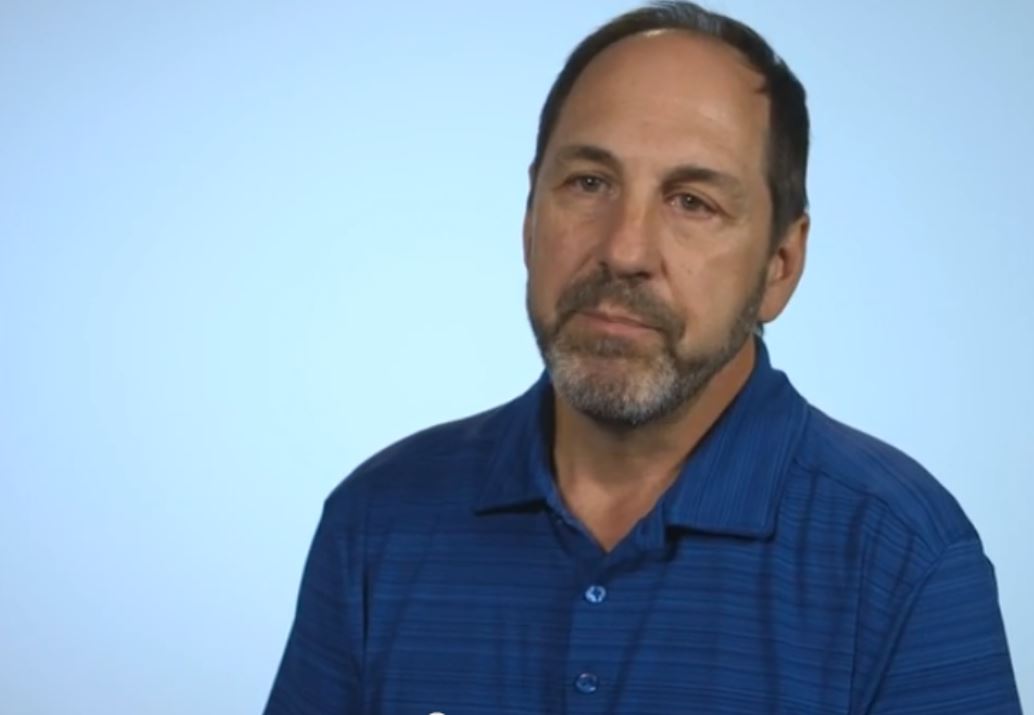Academic Misconduct affects us all!
Click on the sections below to learn more about the causes and effects of academic misconduct and learn some strategies to help keep you out of trouble.
Cause
Why does academic misconduct happen?
READ
Causes of Academic Misconduct
There are many causes of academic misconduct. Sometimes students feel overwhelmed or unsure about a class, so they might be tempted to tamper, cheat, fabricate, plagiarize, or assist others in academic misconduct.
Some of the causes of academic misconduct include:
Time Management
It’s important to make the best use of your time.
“Procrastinating” or waiting until the last minute can be a cause of academic misconduct because you will feel unprepared for your exam or you won't have your assignment finished on time.
Tips:
- Schedule your time. Set aside time each day to do your coursework.
- Set goals for what you want to accomplish that day.
- Time yourself. Read or write for 15 minutes, and then give yourself a 5 minute break.
- Turn off your phone, email, Facebook and twitter feed. These will just distract you from your work.
- Keep a calendar of due dates. This will help you set priorities.
Read additional tips on time management from the Academic Success Center.
Questions to ask yourself
- Do you ever wait until the last minute to do your work? What happens?
- What's your most successful time management strategy?
Overload
Being a student means you have to study and do coursework for many classes at the same time, as well as manage family and work time.
Often it can feel like it is too much work. This can lead to stress.
Students who are feeling stressed or overwhelmed sometimes resort to academic misconduct.
Tips:
- Choose the activities you do outside of class carefully. If you join too many clubs or go out too often, you will feel overloaded. You should still have fun and relax but having a good balance is important.
- Get enough sleep and eat right.
- Work with your advisor to choose courses so you have a balanced course load.
See more tips on achieving balance (balancing work and life) from
the Academic Success Center.
Pressure or Fear of Failing
Sometimes you may feel like you have no choice but to cheat in order to pass the course.
You may feel you have to succeed because you and your family have spent a lot of money for you to come to Oregon State University and you want to meet your family's expectations.
You may be afraid of what will happen if you do poorly in a class or on an exam. When the entire grade for a class is based on a midterm or final exam or major research project, you may feel more pressure to do well because you must pass the exam or project in order to pass the class.
Tips:
- Talk to your instructor or academic advisor. If you need to drop a class, it's better to do that than to get into trouble because you cheated on a test or plagiarized on your paper.
- Get some help with your studies. See the resources guide for places you can go to get assistance with your homework.
- Talk to someone. There are resources on campus like
CAPS (Counseling and Psychological Services) that can give you some good strategies for managing the pressure.
See more tips on how to prepare for exams, tests and quizzes from
the Academic Success Center.
Not Understanding
If you don't understand what you're supposed to do in a class or what is acceptable behavior, you may end up committing academic misconduct and not know it.
Each course syllabus is a contract between you and the instructor. In the course syllabus, the instructor should outline what is or is not acceptable behavior in the class. For example, an instructor may state that working together on homework assignments is not permitted or outside materials may not be used during an exam. It's important that you understand class expectations.
Tips:
- Read each class syllabus carefully. Different instructors will have different expectations. Don't assume they are all the same.
- If something is unclear, ask. It's better to ask now than get into trouble later.
- Find out if you can work in groups, what resources you can use to help you study (for example, a solutions manual), and what you can and cannot bring to a test or quiz.
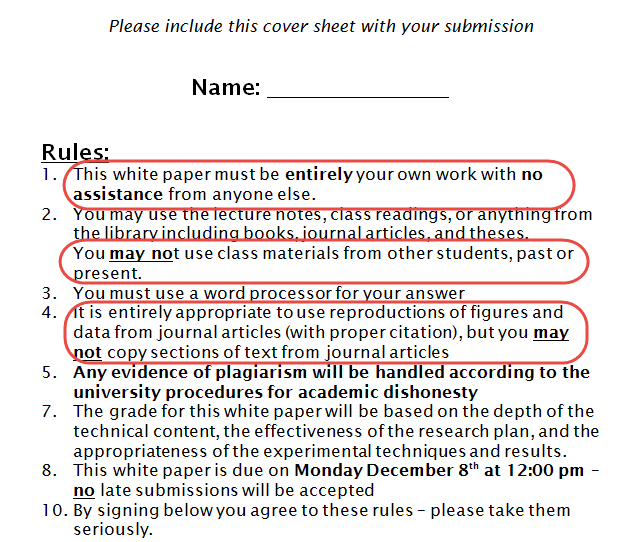
“Everyone here is smarter than I am!”
Feeling like everyone else understands and you don't can lead to academic misconduct.
Sometimes students commit academic dishonesty, like cheating on a test or buying a paper online, because they just don't think they can do the work or they are worried that their writing skills or math skills are just not good enough.
Tips:
- You are just as smart as everyone else but some classes can be challenging.
- If you feel behind in a class or just need a little extra help, there are places you can go. See the resources [tab or column] for some suggestions.
Trying to Help a Friend
Everyone wants to help his or her friends. They'd help you out if you had a problem, right?
So when a friend asks to see your test or the answers to your homework assignment or your paper, it's hard to say no.
But here are a few things to consider:
- If your friend hands in your work, your friend has not learned anything. Think about it; would you want to work with someone in a job who didn't do their homework in college?
- You may be accused of "assisting" or helping someone else cheat. That's also considered academic misconduct and it could get you into trouble.
Even when you are working together with a friend or group of friends, it's important that you all do your own work.
Sometimes you are the one who needs a little help. That's OK, but your friends or family can be a little too helpful. They may offer to rewrite some of your paper or "fix" your computer code. That could be considered academic misconduct. You are better off going to the Academic Success Center or the Research and Writing Center for help.
Tips:
- If your friends ask for help, don't show them your work so they can "get an idea of how to solve the problem." Refer them to a university resource such as the
Academic Success Center. - If your professor says you can work in groups, you can talk about approaches to solving the problem, but don't do the work together.
- If your friend asks you to share your answers or your homework so he or she can copy it, say no. It's hard to do that, but it's better for both of you.
- If you want advice on your homework, use one of the university resources, such as the Academic Success Center.
Different Cultural Understanding of Academic Honesty
Across the world, there are different ways that cultures define academic honesty.
Different cultures place value on different things. For example, some cultures value working together in groups and sharing ideas. Some value individual work and giving credit to the authors for original ideas. This different cultural understanding of academic honesty can be confusing. What you may have been told about academic misconduct at your previous school or university may be different than how we define it here.
Listen to what some of these students learned about these cultural differences.
Questions to ask yourself
- Are you worried about committing academic dishonesty accidentally?
- What is your understanding of the term "academic dishonesty"?
- Why is it important to do your own work, even if you have a study group?
- Is citing your sources important?
Effect
What are the effects and consequences of academic misconduct?
READ
The Effects of Academic Misconduct
Who is affected by academic misconduct? How are they affected by academic misconduct?
Academic misconduct affects more than just the student found responsible – academic misconduct affects all members of the community.
You
If you commit an act of academic dishonesty, there are potentially serious consequences.
These affect not only you, but your peers, community, and the university.
If you commit academic misconduct:
- You may get only partial credit, a zero, or even fail an assignment or exam.
- You may fail a class and not be able to retake it.
- If you can retake it, remember that it's expensive to have to take a class again.
- In some colleges, two cases of academic misconduct will result in you being suspended from that college for one year.
- If it's a course required for your major, and you cannot retake it, you may have to choose a new major.
- In serious or repeat cases of academic misconduct, you may be suspended or expelled from the university.
- If you are here on a visa, it may affect your immigration status.
If you are found responsible for violating the Code of Student Conduct, this information will be in your private conduct file for five years after the incident occurred.
Professors/Instructors
Professors and Instructors teach with the hope that students will be creating their own original work.
This way they know that their students understand the course subject. If you commit academic misconduct, professors have a false idea of how well you understand the concepts. Academic dishonesty is unfair to professors, instructors, and teaching assistants.
- How does academic dishonesty impact you and your classes?
Classmates
A class is a community of students. You are expected to perform the best you can.
However, if one student is dishonest, it affects other students in class.
For example, if you cheat on an exam, it's unfair to the other students who did the work honestly. If it's an exam with a curve, the professor may adjust the curve. An increased curve can cause your classmates' grades to be negatively affected.
Another example is group work.
If you decide to copy material online and use it in a group assignment–which is plagiarism–everyone in the group may be found responsible for academic dishonesty.
Question to ask yourself
- How do you feel when a classmate cheats?
Your Community (friends and family)
College is a great time to make friends.
Some students learn very well in study groups, etc. However, remember that friendships should not include sharing assignments, sharing answers to exams, or asking a teaching assistant to change a grade.
A common example of how friends are affected by academic dishonesty is through assisting. If you ask to look at a friend's homework assignment for inspiration, and you use portions of it for your own work, you may both be found responsible.
Your family is also affected by your academic dishonesty. Image how hard it will be to have to tell them that you have failed a course or are even suspended.
Remember, there are many people who have worked hard to help you come to Oregon State and who want you to succeed.
You don't always know what the impact of your behavior will be on them.
The University and Beyond
If you graduate from school by cheating, then your degree has not actually been earned.
You may find a job in your field, but your educational knowledge may not match your degree, and employers will think less of the university. The value of an education at a university is very high, but academic dishonesty can give the university a bad reputation.
Why does Academic Misconduct matter to the University?
Why does Academic Misconduct matter to the University?
What do employers think about Academic Misconduct?
Consequences
What happens if you are accused of violating the Code of Student Conduct?
READ
If you are accused of violating
the Code of Student Conduct
If you are accused of violating the Code of Student Conduct, the university has a process for resolving that allegation (Code of Student Conduct; Section 5.11 Academic Integrity Process). In this process, you have an opportunity to respond and discuss the allegation. In most cases, your situation will be processed by a College Hearing Officer forom the academic college where the alleged violation occurred. In some cases, you may be referred to the Office of Student Conduct and Community Standards.
There are resources to help you. The staff at Student Conduct and Community Standards will walk you through the process and answer your questions.
See the Student Conduct and Community Standards page on Conduct Processes for details.
